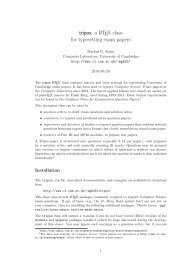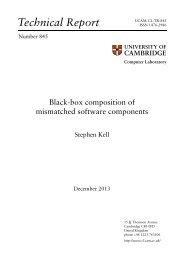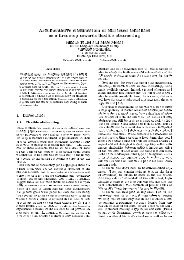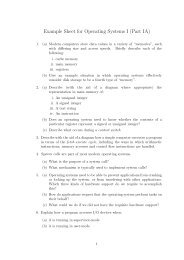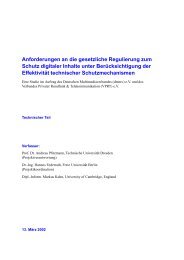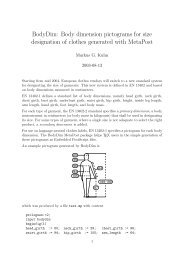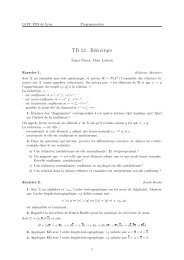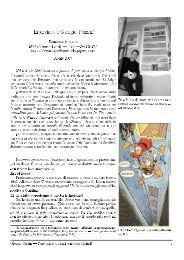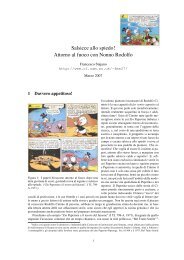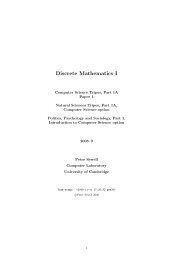Radical innovation: crossing knowledge boundaries with ...
Radical innovation: crossing knowledge boundaries with ...
Radical innovation: crossing knowledge boundaries with ...
Create successful ePaper yourself
Turn your PDF publications into a flip-book with our unique Google optimized e-Paper software.
13. Appendix C: Further reading<br />
13.1.1 Report of US National Academies<br />
National Academies (U.S.). Committee on Facilitating Interdisciplinary Research,<br />
Committee on Science, Engineering, and Public Policy (U.S.), National Academy of<br />
Sciences (U.S.), National Academy of Engineering, Institute of Medicine (U.S.)<br />
(2005). Facilitating Interdisciplinary Research. National Academies Press<br />
This book is a major resource and point of comparison for our work, but based on a<br />
survey of interdisciplinary research (IDR) in the USA rather than UK. It does not<br />
have a specific emphasis on <strong>innovation</strong> (although <strong>innovation</strong> is an implicit agenda).<br />
The principal driver for IDR is presented as being the need to address problems that<br />
are fundamentally complex, and that cross disciplinary <strong>boundaries</strong>.<br />
“We are not students of some subject matter, but students of problems.<br />
And problems may cut right across the borders of any subject matter or<br />
discipline.” (Popper, in Conjectures and Refutations).<br />
The book mostly presents case studies and survey results of IDR in practice, <strong>with</strong>out<br />
returning to the question of how and why IDR works. A chapter of definitions does<br />
set out the reasons it might be necessary, but these are open to question, and certainly<br />
differ from UK priorities (the definitional example of public value from IDR is the<br />
Manhattan Project, which introduces political implications that would be considered<br />
controversial in the UK). The methodology of the study can be compared to ours, in<br />
that it included both national surveys and in-depth interviews of IDR leaders.<br />
However, it does not attempt any of the more reflective and re-formulative elements<br />
of our research. The conditions for success in IDR include the establishment of a team<br />
around a problem, support for flexible work, the need for shared facilities, and the<br />
management and career structures that are likely to assist such researchers. The policy<br />
recommendations are to encourage informality, longer grants, collaborative leadership<br />
and support for career development and mobility. They note the problem <strong>with</strong><br />
evaluation of IDR, and suggest that engagement <strong>with</strong> reflective social science might<br />
be beneficial in future – in this respect, interdisciplinary practice in the USA seems to<br />
lag behind that in the UK, as in the work of networks such as Crucible (Blackwell &<br />
Good 2008).<br />
13.1.2 Logics of Interdisciplinarity<br />
Barry, A., Born, G., and G. Weszkalnys (2008). Logics of Interdisciplinarity.<br />
Economy and Society, 37(1): 20-49.<br />
This paper was prepared during the period of the research described in our own<br />
report, and draws on the authors’ previous collaborations <strong>with</strong> the Cambridge<br />
Crucible network. Barry used this research as the basis for his own advice on<br />
Innovation and Interdisciplinarity 112



